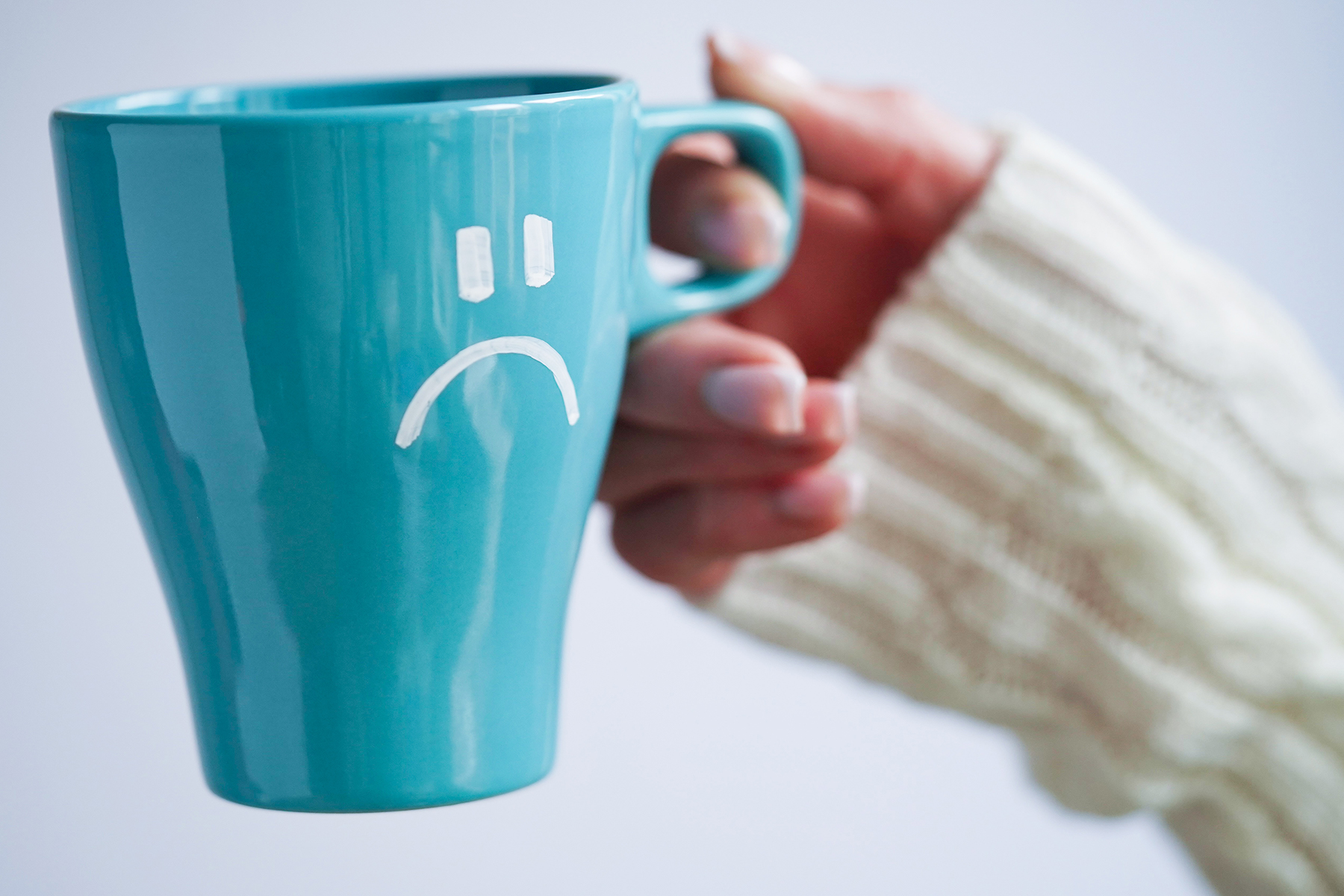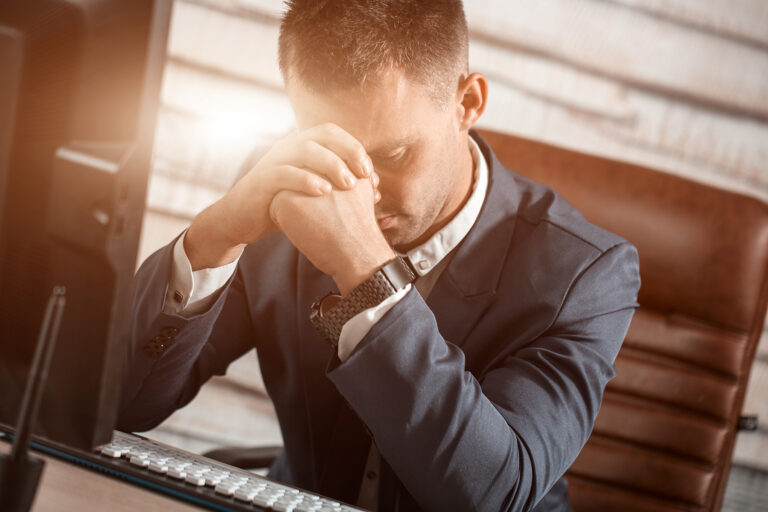We use the word depression a lot in our day-to-day life to mean feeling sad, down or low. You’ll often hear people say things like, “I’m so depressed, I hate my job”, but being happy and well in all other areas of their lives. This is not depression, and it is vital to differentiate depression from having a short period of feeling sad about something specific.
Depression is a feeling of constant and intense sadness which lasts for a long period of time and is not specifically focused on one issue. It can cause a lack of interest in life and makes a serious impact on your health and wellbeing and ability to lead a full and happy life.
Symptoms of depression
During an assessment to diagnose depression, medical professionals are trained to look out for five or more of the following symptoms for two weeks or more. Please look out for the following symptoms in yourself or others and see a doctor to receive a diagnosis and appropriate treatment.
- Low mood for most of the day, particularly in the morning
- A lack of energy or feelings of tiredness almost every day
- Feelings of lack of worth or guilt almost every day
- A feeling of hopelessness or pessimism
- Struggling to focus, remember details and make decisions
- Sleeping problems – either insomnia or sleeping too much almost every day
- Little interest in or pleasure from many activities
- Thinking about death or suicide
- Feeling restless or slowed down
- Changes in weight
Depression can happen to anyone at any age and it is a serious mood disorder which changes the brains chemicals. If you are experiencing depression, it can be easy to lose hope, but we’d urge you to ask for help and tell people how you’re feeling so that you can receive treatment.
Treatments for depression
Unfortunately, there is no definitive cure for clinical depression, but there are a wide range of treatment options and management techniques to help you deal with it and not let it control you. With the right treatment, many sufferers live in remission and have happy and fulfilling lives.
There are a large number of antidepressants available to help with symptoms of depression and these should be prescribed to you by a doctor. It’s a complex area and so you may need to try a few before you find one that works for you, but don’t lose hope, there’s a medication out there which will make you feel better.
Therapy is also highly effective in treating depression, with or without medication. There are a range of psychotherapy options for depression, such as cognitive behavioural therapy, behavioural therapy, psychodynamic therapy and interpersonal therapy. These can really help you to cope better with difficulties and replace negative beliefs and behaviours with positive ones. There’s also trauma therapy to help you to come to terms with a distressing trauma which could have triggered your depression. This therapy can be given in a group or 1-2-1, in person or online, in an inpatient facility or hospital.
As you can see, there are many different options out there. They can be combined and studies show that medication and therapy together work the best for long-term relief from the symptoms of depression. Alongside these approaches, lifestyle changes can also really support good mental health. It has been proven that food and exercise are fundamental to good mental health and so techniques such as nutritional rehabilitation and yoga can help you to boost your mood and give you coping strategies for coming out of periods of depression.
Depression and addiction
There is a clear link between depression and substance abuse and that relationship works both ways. According to addictioncentre.com an estimated one-third of people with major depression also have an alcohol problem.
One kind of depression is substance-induced mood disorder (SIMD) where symptoms are associated with either taking a drug or drinking alcohol, or stopping.
Drinking too much alcohol can cause feelings of depression as it depresses the nervous system. If you’re addicted to drugs or alcohol it can trigger, or intensify, the feelings that are associated with depression, such as loneliness, sadness and hopelessness. When you feel like that you are likely to drink more or increase your drug use, which can trigger the downward spiral into addiction.
Our private rehabilitation centre supports many addicts who have turned to drugs or alcohol to cope with depression, or where depression is at the root of many of their addictive behaviours. We’d discourage self-medicating, and instead having an open and honest discussion with your doctor about your mental health, medication options and their side effects.
We’d also suggest that you undertake therapy and counselling while you seek help with your addiction in order to address any underlying mental health issue or trauma that could be part of your addiction. Dealing with these issues offers you a much better chance of long-term recovery.
At The Bridge our luxury addiction treatment programmes include intensive therapy, alongside 12-step meetings and a safe space in which to stop taking drugs or drinking alcohol. Our experienced and highly qualified team work on all aspects of your mental health and use nutritional rehabilitation, yoga and exercise to strengthen the body and boost your mood.
By combining all of these things our clients leave us clean and sober and with a wide range of techniques to stop them relapsing. They also have a clear understanding of how their mental health and addiction is related and what they need to do to reduce the symptoms of depression and cope with them without turning to drugs and alcohol. Please ask us if we can help you and contact us to find out more about our private rehabilitation centre.




